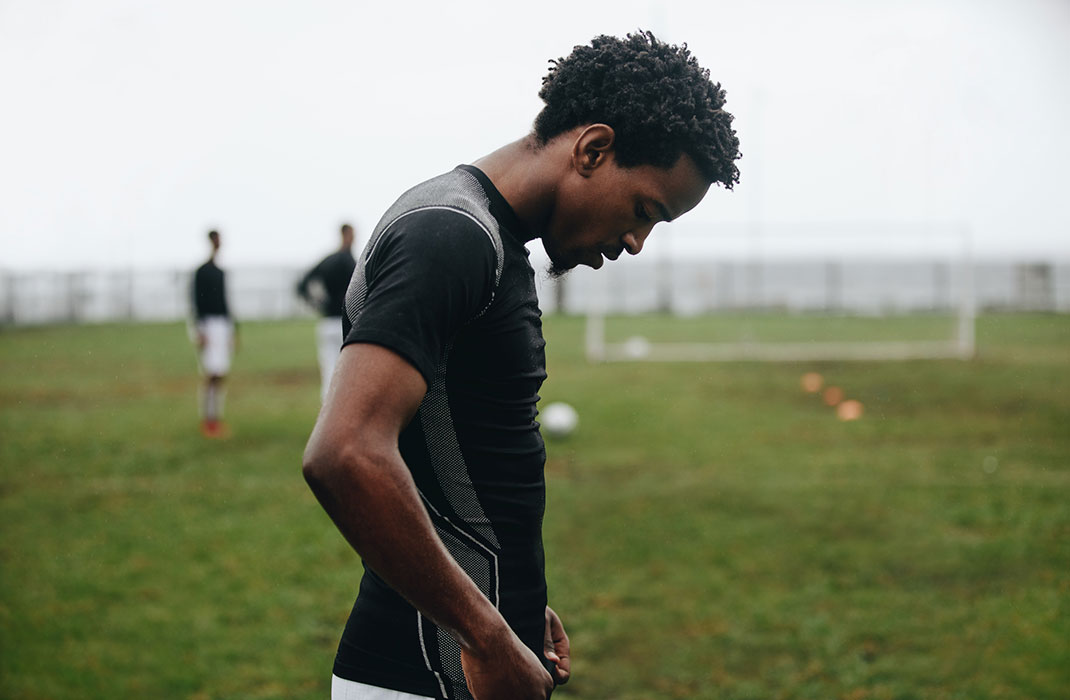-
- Find Care
-
- Visitor Information
- Find a Location
- Shuttles
- Visitor Policies
-
-
- Our Virtual Care Options
- Virtual Urgent Care
- Virtual Visits for Primary & Specialty Care
- Online Second Opinions
- Participate in Research
-
- Contact us
-
- For Innovators
- Commercialization Guide for Innovators
-
-
- Research News
- Alzheimer's Disease
- Artificial Intelligence
-
- Overview
-
- Overview
- Getting Started
- New to Mass General Brigham
- International Patient Services
- What Is Patient Gateway?
- Planning Your Visit
- Find a Doctor (opens link in new tab)
- Appointments
- Patient Resources
- Health & Wellness
- Flu, COVID-19, & RSV
- Billing & Insurance
- Financial Assistance
- Medicare and MassHealth ACOs
- Participate in Research
- Educational Resources
- Visitor Information
- Find a Location
- Shuttles
- Visitor Policies
- Find Care
-
- Overview
- Our Virtual Care Options
- Virtual Urgent Care
- Virtual Visits for Primary & Specialty Care
- Online Second Opinions
-
- Overview
- Participate in Research
-
- Overview
- About Innovation
- About
- Team
- News
- For Industry
- Venture Capital and Investments
- World Medical Innovation Forum (opens link in new tab)
- Featured Licensing Opportunities
- For Innovators
- Commercialization Guide for Innovators
- Contact us
-
- Overview
- Information for Researchers
- Compliance Office
- Research Cores
- Clinical Trials
- Advisory Services
- Featured Research
- Two Centuries of Breakthroughs
- Advances in Motion (opens link in new tab)
- Brigham on a Mission (opens link in new tab)
- Gene and Cell Therapy Institute
- Research News
- Alzheimer's Disease
- Artificial Intelligence
-
- Overview
-
- Overview
- Residency & fellowship programs
- Brigham and Women's Hospital
- Massachusetts General Hospital
- Mass Eye and Ear
- Newton-Wellesley Hospital
- Salem Hospital
- Integrated Mass General Brigham Programs
- Centers of Expertise
- Global & Community Health
- Health Policy & Management
- Healthcare Quality & Patient Safey
- Medical Education
- For trainees
- Prospective trainees
- Incoming trainees
- Current trainees
- Continuing Professional Development
How Does Sleep Affect Athletic Performance?

Athletes compete at their best when they feel their best. No amount of training or meal prep will help them feel more energized, refreshed, and ready to compete than the right amount of uninterrupted sleep.
Those who choose to neglect sleep days before a competition can jeopardize their performance.
“If you’re someone who thinks they can operate well with 4 hours of sleep, you're kidding yourself in the long run,” says Mark D. Stephenson, MS, ATC, CSCS,*D, TSAC-F,*D, director of Tactical Research Development and Innovation at the Center for Sports Performance and Research. “Sleep needs to be taken as seriously as the foods we eat. If you’re not feeling the effects the next day, there’s a good chance it will catch up with you months and years later.”
Stephenson explains how sleep affects athletic performance and how an athlete can adjust their lifestyle to sleep better.
How does sleep affect athletic performance?
During sleep, the brain flows in and out of four sleep stages. Different brain frequencies, or signals, occur in each stage. Much of the body’s repair occurs during slower, “deep sleep” frequencies.
How much time the brain spends in deep sleep, and how many times it cycles through each stage, can affect how an athlete recovers physically and mentally, as well as their availability on gameday.
Physical recovery
People need sleep to rest and recover from injuries. Even the most ordinary activities, such as walking and talking, wear down dozens of tiny muscles over the course of a day. Athletes work much larger muscles when they sprint, run, throw, or perform other activities. They do so at a much higher level of intensity, too.
The constant breakdown and recovery of these muscles allow athletes to improve their fitness and adapt to higher competition levels.
According to Stephenson, an athlete’s body repairs muscles best when it spends about 50% or more of its time asleep in deep sleep. Without enough time in this stage, their body may not undergo enough repair for them to feel ready to train at nearly the same level as they had the day before.
He adds that cycling through each sleep stage 6 or 7 times a night allows an athlete to feel most rested.
Mental recovery
Signals sent from the brain control muscles throughout the body. But, like the muscles it powers, the brain tires without a break. During deep sleep, cerebral spinal fluid washes over the brain and clears away debris that accumulates on its surface.
Without enough sleep, this debris can weaken signals from the brain. The weakened signals impact decision making, reaction time, and the pace at which an athlete moves their muscles.
“Think of it like a dimmer switch,” says Stephenson. “You don’t have the same power going through that switch, so the light bulb won’t be as bright.”
Illness and injuries
Athletes never want an injury or illness to keep them off the field. Unfortunately, too little sleep can compromise an athlete’s long-term health. Child athletes, whose bodies rapidly change each year, need more sleep than adult athletes to account for their rapid growth.
“When you’re a teenager, you may think you’re better equipped to rebound from losing sleep than you are in your late twenties,” says Stephenson. “But you’re not actually rebounding at all.”
Gradually, a lack of sleep can affect:
- Heart health: Conditions like sleep apnea, which occurs when someone cannot breathe regularly while asleep, limits the amount of oxygen distributed throughout the body by the heart during sleep. The heart responds by pumping faster, which can lead to hypertension (high blood pressure). Insomnia, or a lack of sleep, can also make it more likely to develop obesity and diabetes.
- Digestive health: Digestion slows down during deep sleep. According to Stephenson, athletes who make late-night meals a habit can heighten their risk of developing several bowel-related diseases, including irritable bowel syndrome. These conditions make it harder for the body to absorb nutrients, like proteins, needed to repair tissue. Stephenson recommends meeting with a sports nutritionist to tailor when they eat around a healthy sleep schedule.
A lack of sleep can also make it harder for athletes to focus on the playing field. Those who play contact sports cannot afford to break their concentration when moving at high speeds. A small slip, uneven fall, or blind-side hit — no matter how accidental — can result in a concussion, bone fracture, sprain or strain, or some other sports-related injury.
How can athletes maximize sleep prior to competition?
Circadian rhythms, or our internal clock, determine when the brain enters its sleep cycle. These rhythms are sensitive to sunlight. For example, in response to the sun setting, the brain releases a hormone called melatonin, which triggers drowsiness.
Too much activity and overstimulation, however, can prevent the brain from entering its sleep cycle.
Tips to optimize sleep for athletic competition
An athlete may struggle to adjust their sleep routine when traveling to competitions. For optimal sleep hygiene, Stephenson recommends they:
- Maximize sleep 2 nights before their event: Try going to bed an hour earlier than usual on both nights. The extra time could produce 1 or 2 extra sleep cycles, allowing the body to repair more damage ahead of the competition than it normally would.
- Cool down the room: When too hot, the brain focuses on cooling itself down instead of preparing itself for sleep. Keep the room temperature at 68 degrees Fahrenheit to help your body stay cool.
- Avoid large meals close to bedtime: The brain may struggle to fall asleep when more active digestion begins right before bed.
- Pack sheets and pillows from home: Athletes traveling for away events may feel more comfortable falling asleep in a familiar bedroom environment.
- Limit screen time a few hours before bed: Lights from smartphones, video games, and televisions can make it harder for the brain to switch into sleep mode. The light exposure may even delay the release of melatonin.
- Try restricted environmental stimulation technique (REST): Also known as “float therapy,” an athlete uses a shallow pool of high-density Epsom salt to create a sense of weightlessness. The pool restricts light and sound while the temperature of your body matches that of the water and the air. Stephenson says 20- to 40-minute pool sessions can slow down brain waves. Such pools are available at the Center for Sports Performance and Research’s recovery suite.
Can energy drinks make up for lost sleep?
Athletes may turn to caffeinated energy drinks to wake them up after a restless night or if they feel tired from jet lag. Despite the sudden rush of energy, these beverages will not help athletes make up for lost sleep.
They do not guarantee a sharper performance either, says Stephenson. If anything, athletes often experience a “crash” when the effects of the caffeine fade away. That crash can leave them more tired and sluggish than they felt before.
“These beverages aren’t nearly strong enough to keep you awake for an entire game or competition,” he says. “You may last a few plays, but those heightened energy levels aren’t sustainable.”
Caffeine acts as a stimulant, which can also raise heart rate to an uncomfortable level or irritate bowels. That said, Stephenson does offer one healthy, harmless trick for those looking for a quick wake-up call: lemon juice.
“If you want to avoid that sudden ‘crash,’ try sucking on a lemon wedge, or really any naturally bitter substance,” says Stephenson. “The unpleasant sensation can help you stay alert for a short period of time.”
How do you know if you’re getting enough sleep?
According to the U.S. Department of Health and Human Services, most adults need 7 or more hours of uninterrupted sleep each day. Children need significantly more, and their recommended hours of sleep increase the younger their age.
Athletes, and their coaches, can identity sleep-related issues if an athlete:
- Feels sleepy at unusual times of the day.
- Experiences lapses in memory.
- Notices sudden drops in energy levels.
- Wakes up multiple times at night and struggles to fall back asleep.
- Struggles to fall asleep within a half hour of getting into bed.
- Needs multiple naps throughout the day.
Wearable devices for sleep
Some wearable devices, such as rings and watches, can help athletes screen subtle changes in their sleep before they begin to show signs of insomnia. Many measure heart rate, oxygen levels, and body movements to indirectly record their sleep stages.
While the devices are not nearly as accurate as a sleep test at a medical center, Stephenson says that the devices can still provide consistent, average readings. So, if athletes notice their sleep change over the course of a few weeks, they may want to see a sleep doctor before exhaustion affects their performance.
“We’re most concerned with those who chronically aren’t getting enough sleep,” says Stephenson. “If you lose one night's sleep, you don't need to panic. It's not going to ruin you. But constantly getting only 4 or 5 hours of sleep a night, that chronic effect is going to impact you sooner than you think.”
